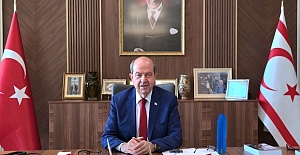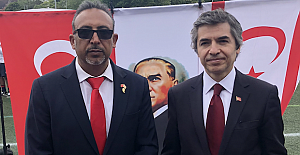NATO is warning that a Russian intervention in Ukraine is likely, fearing that a convoy of humanitarian aid dispatched by the Kremlin to the separatist-held city of Luhansk, in eastern Ukraine, is being used as cover for a military buildup. Russian aid, which is being delivered as part of a Red Cross–administered program, comes in response to setbacks suffered by pro-Russian rebels in the past week. The Putin Administration insists the assistance is purely humanitarian, and Ukraine has indicated that it welcomes the international relief mission of which the Russian convoy is a part. Nonetheless, Kiev and its Western backers remain suspicious of Moscow's motives. According to NATO, Moscow has around 20,000 combat-ready troops along Ukraine's border. The Associated Press reported that 280 trucks left the Moscow area Tuesday, painted in Red Cross livery. Andre Loersch, a spokesman for the International Committee of the Red Cross in the Ukrainian capital, Kiev, told AP that he had "no information about the content" of the trucks.
On Monday, NATO's Secretary General Anders Fogh Rasmussen told Reuters that there was "a high probability" of a military intervention by Russia. "We see the Russians developing the narrative and the pretext for such an operation under the guise of a humanitarian operation and we see a military buildup that could be used to conduct such illegal military operations in Ukraine," he said.
The conflict in Ukraine has led to a crisis between East and West at a level not experienced since the Cold War, with wide-ranging sanctions on Russia imposed by the E.U. and Washington. Military intervention by Russia would significantly exacerbate tensions, although Rasmussen suggested that NATO would not be drawn into an armed conflict.
"If the Russians were to intervene further in Ukraine, I have no doubt that the international community would respond determinedly, notably through broader, deeper, tougher economic sanctions that would isolate Russia further," he said.
The Kremlin describes the situation in eastern Ukraine, where hundreds of thousands have fled the intensified fighting over the past week, as "catastrophic." While agreeing that the humanitarian situation was "disastrous," Rasmussen called on Moscow to pull back its troops, "stop the flow of weapons and fighters and money into Ukraine and cease the support for armed separatists and engage in a constructive political dialogue."





